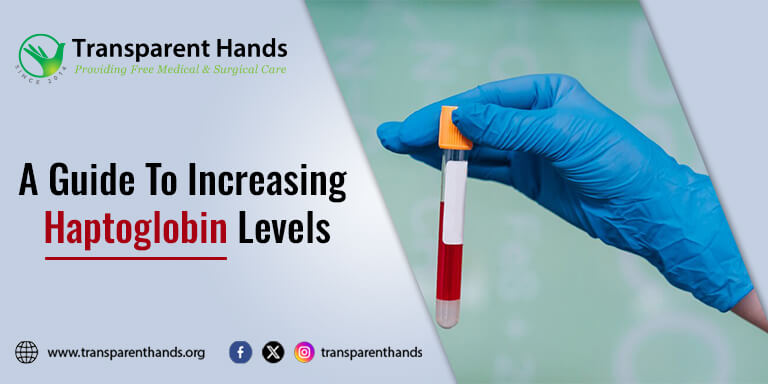How to increase HP levels

Do you know how to increase HP levels and why they are so crucial for our overall well-being? Picture your body as a high-performance machine, with HP levels representing the key to unlocking its full potential. In this blog post, we’ll embark on a journey to explore not just the importance of HP levels but also the effective strategies on how to increase HP levels. Yes, you heard it right – we’ll delve into the specifics of how to increase HP levels not once, not twice, but three times over. Join us as we unravel the secrets to achieving optimal vitality and embracing a life powered by peak health.
Haptoglobin
Do you know what haptoglobin is? Are you aware of the crucial function it performs inside the body? Haptoglobin is like the unsung hero quietly working behind the scenes in our bodies, and its role is more crucial than you might think. This glycoprotein, produced by the liver, has a multitude of functions that impact our overall health. One of its most important functions is binding to free hemoglobin, preventing it from causing oxidative havoc.
Why Haptoglobin Deserves the Spotlight
Haptoglobin is a key player in our body’s defense against oxidative stress and various health conditions. First, let’s understand what the oxidative stress is. The phenomenon refers to a state when there is an imbalance between the body’s antioxidant defenses and free radicals.
Haptoglobin prevents the oxidative stress and here’s why it deserves more recognition:
Binding to Hemoglobin: Picture this – when red blood cells break down, they release hemoglobin into the bloodstream. Haptoglobin steps in, latching onto this free hemoglobin, and ensures that it doesn’t wreak oxidative havoc. This is a crucial process for maintaining overall health.
Inflammation Control: Haptoglobin does not perform a single function only. It also plays a role in reducing inflammation, acting as a shield against the harmful effects of excessive inflammation linked to chronic diseases.
Antioxidant Properties: By capturing free hemoglobin, haptoglobin showcases its superior functionality in our bodies with antioxidant properties. This is a big win in the battle against oxidative stress, a culprit in various health issues like cardiovascular diseases and cancer.
Decoding Hemoglobin Oxidation
Before we dive into the nitty-gritty of low haptoglobin levels, let’s understand the problem– hemoglobin oxidation. It’s a chemical process that damages hemoglobin, the protein responsible for carrying oxygen in red blood cells. Reactive oxygen species (ROS), those troublemakers that can damage cells, often trigger this process. Oxidized hemoglobin struggles to bind to oxygen, potentially leading to tissue damage and health problems.
This oxidation process is closely tied to oxidative stress and inflammation, caused by exposure to toxins, certain medical conditions, or chronic diseases. Preventing or minimizing hemoglobin oxidation is crucial for overall health, ensuring a smooth delivery of oxygen to all cells and organs.
Low Haptoglobin Levels: What Happens Then?
If your haptoglobin levels are running low, it’s like a warning light on your health dashboard. Several factors could be at play, and they might be linked to underlying health conditions. Here are the usual suspects:
Hemolysis: This is the breakdown of red blood cells, leading to a surge in free hemoglobin in the bloodstream. Haptoglobin steps in to bind to the excess hemoglobin, but this move comes at a cost – it depletes haptoglobin levels.
Hemolytic Anemia: This condition fast-tracks the destruction of red blood cells, further diminishing haptoglobin levels.
Liver Disease: The liver, the factory of our bodies, produces haptoglobin. Any glitch in this factory can disrupt production, resulting in low levels.
Inflammation Overdrive: Elevated inflammation levels can devour haptoglobin, leaving less of it for its duties.
Genetics: Sometimes, it’s in the genes. Certain individuals may have a genetic predisposition to lower haptoglobin levels.
Low haptoglobin levels are not to be taken lightly. They could be signaling underlying health issues, such as hemolytic anemia, chronic inflammation, or liver disease. Addressing these concerns and boosting haptoglobin levels is like giving your body the support it needs.
The Strategies on How to Increase HP Levels
So, how do you give your haptoglobin levels a much-needed boost? Let’s unravel a practical action plan:
Tackle Underlying Conditions: Identifying and addressing the root cause of low haptoglobin levels is your first mission. Consult with a healthcare professional for a thorough evaluation and appropriate treatment. This might involve managing conditions like hemolytic anemia, addressing liver issues, or tackling chronic inflammation.
Nourish Your Body: The fuel your body needs extends to haptoglobin levels. Load up on foods rich in antioxidants – think fruits and veggies – to combat oxidative stress. Iron-rich foods also play a role in maintaining red blood cell health and preventing hemolysis.
Consider Supplements: In some cases, your healthcare provider might recommend haptoglobin supplements. Always consult with them before adding any supplements to your routine.
Tame Inflammation: Chronic inflammation is like a haptoglobin vacuum. Adopt a lifestyle that includes stress management, regular exercise, and a balanced diet to keep inflammation in check.
Stay in the Know: Regular check-ups with your healthcare provider are non-negotiable. Routine blood tests can be your health detectives, identifying any fluctuations in haptoglobin levels and guiding appropriate interventions.
Embrace a Healthy Lifestyle: Your everyday choices matter. Kick the smoking habit, keep alcohol consumption in check, and manage conditions like diabetes that contribute to oxidative stress and inflammation.
Conclusion
Haptoglobin may not be known by most people, but its role in your health is undeniable. Low levels are like warning sirens, urging you to take action. If you’re wondering how to increase HP levels, first, make sure you diagnose if your body has a deficiency. If there is one, try raising the levels with natural foods. Apart from meeting your daily HP requirements, they will also provide your body with a plethora of other nutrients. If you still struggle with increasing your heptaglobin, only then resort to medication.










Leave a Reply